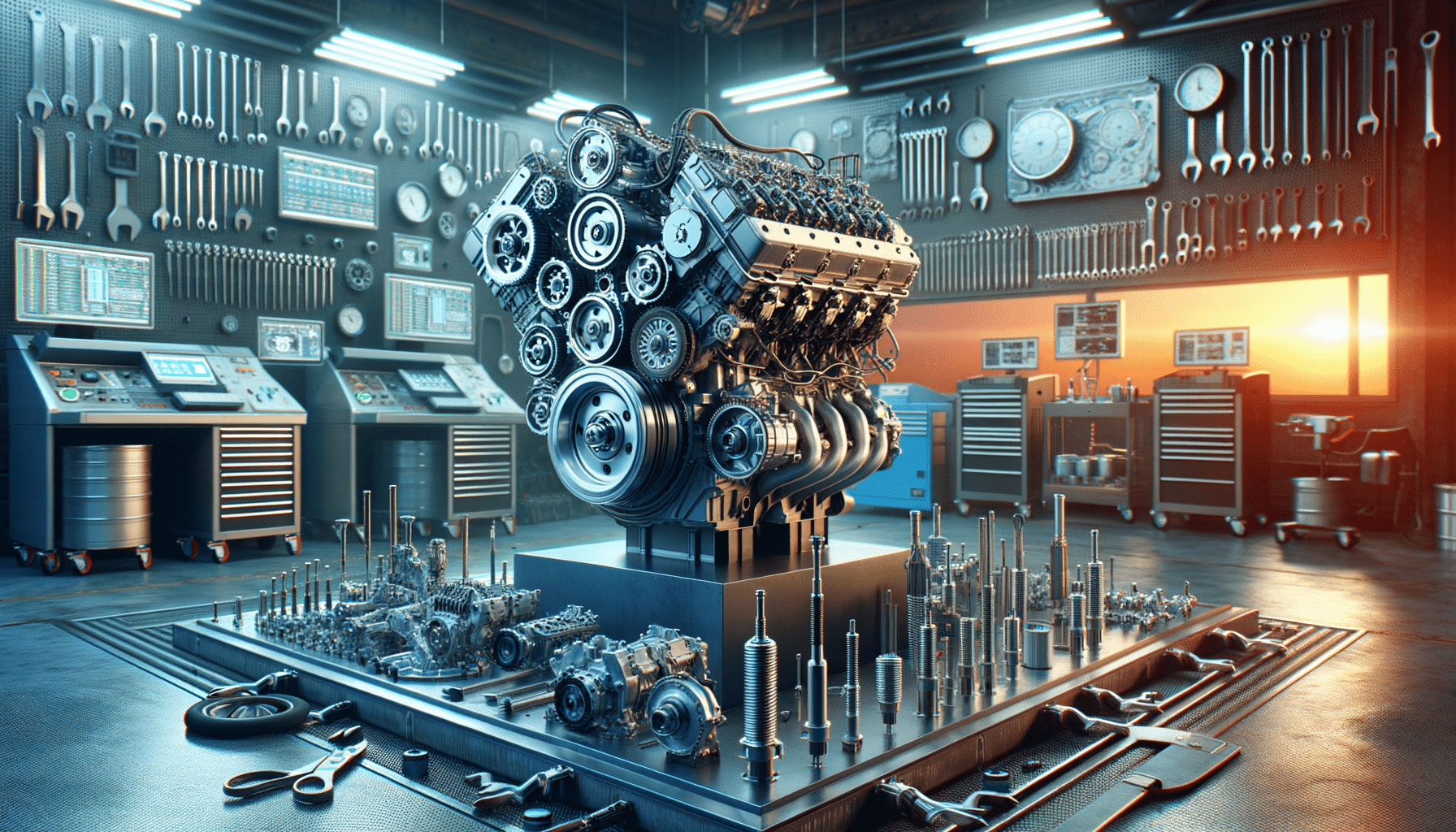
Buying Insights for Remanufactured Engines
Introduction to Remanufactured Engines
In the world of automotive repair and maintenance, remanufactured engines have emerged as a viable option for vehicle owners seeking cost-effective and environmentally friendly solutions. A remanufactured engine is one that has been restored to its original specifications through a process of disassembly, cleaning, inspection, and replacement of worn or damaged parts. This not only extends the life of the engine but also contributes to sustainability by reducing waste and conserving resources.
The importance of remanufactured engines lies in their ability to offer a balance between performance and cost. By opting for a remanufactured engine, vehicle owners can save significantly compared to purchasing a brand-new engine, while still benefiting from a reliable and efficient power source. Additionally, the remanufacturing process often involves upgrades and improvements that enhance the engine’s performance, making it a compelling choice for those looking to optimize their vehicle’s capabilities.
The Process of Engine Remanufacturing
Engine remanufacturing is a meticulous process that involves several key steps to ensure the engine is restored to its original condition. The process begins with the complete disassembly of the engine, allowing technicians to thoroughly clean and inspect each component. This step is crucial as it helps identify any parts that are worn, damaged, or otherwise unsuitable for reuse.
Once the inspection is complete, the necessary parts are replaced with new or reconditioned components. This often includes critical elements such as pistons, bearings, and gaskets. The engine is then reassembled with precision, ensuring that all components are correctly aligned and functioning as intended. Finally, the remanufactured engine undergoes rigorous testing to verify its performance and reliability.
Throughout this process, attention to detail and adherence to strict quality standards are paramount. By following a systematic approach, remanufacturers can deliver engines that meet or exceed the performance of their original counterparts, providing customers with a dependable and cost-effective solution.
Benefits of Choosing a Remanufactured Engine
There are numerous advantages to selecting a remanufactured engine for your vehicle. One of the most significant benefits is cost savings. Remanufactured engines are typically more affordable than new ones, making them an attractive option for budget-conscious consumers. This cost-effectiveness does not come at the expense of quality, as remanufactured engines are built to meet stringent standards and often include warranties for added peace of mind.
In addition to financial savings, remanufactured engines also offer environmental benefits. By reusing and recycling existing engine components, the remanufacturing process reduces waste and minimizes the demand for new materials. This contributes to a more sustainable automotive industry and helps conserve valuable resources.
Furthermore, remanufactured engines can provide performance enhancements. During the remanufacturing process, engines may be updated with the latest technology and improvements, resulting in better fuel efficiency, increased power, and reduced emissions. This makes remanufactured engines a smart choice for those looking to improve their vehicle’s performance while remaining environmentally conscious.
Considerations When Purchasing a Remanufactured Engine
When considering the purchase of a remanufactured engine, there are several factors to keep in mind to ensure you make an informed decision. First and foremost, it’s important to research and select a reputable remanufacturer. Look for companies with a proven track record of quality and customer satisfaction, as well as those that offer comprehensive warranties and support.
Another key consideration is compatibility. Ensure that the remanufactured engine is suitable for your specific vehicle make and model. This will help avoid any potential issues with installation and performance. Additionally, it’s wise to inquire about the specific components that have been replaced or upgraded during the remanufacturing process, as this can provide insight into the engine’s expected longevity and performance.
Finally, consider the overall value of the remanufactured engine. While price is an important factor, it’s equally important to weigh the benefits of improved performance, reliability, and environmental impact. By taking these factors into account, you can make a well-rounded decision that aligns with your needs and priorities.
Conclusion: The Future of Remanufactured Engines
As the automotive industry continues to evolve, remanufactured engines are poised to play an increasingly important role in providing sustainable and cost-effective solutions for vehicle owners. By offering a balance of affordability, performance, and environmental benefits, remanufactured engines represent a compelling option for those seeking to extend the life of their vehicles without compromising on quality.
Looking ahead, advancements in technology and manufacturing processes are likely to further enhance the appeal of remanufactured engines. As consumers become more aware of the environmental impact of their choices, the demand for sustainable automotive solutions is expected to grow. By embracing remanufactured engines, vehicle owners can contribute to a more sustainable future while enjoying the benefits of a reliable and efficient power source.


